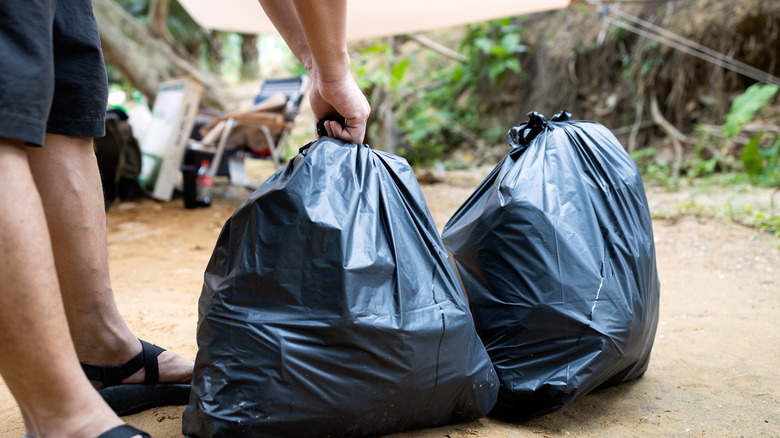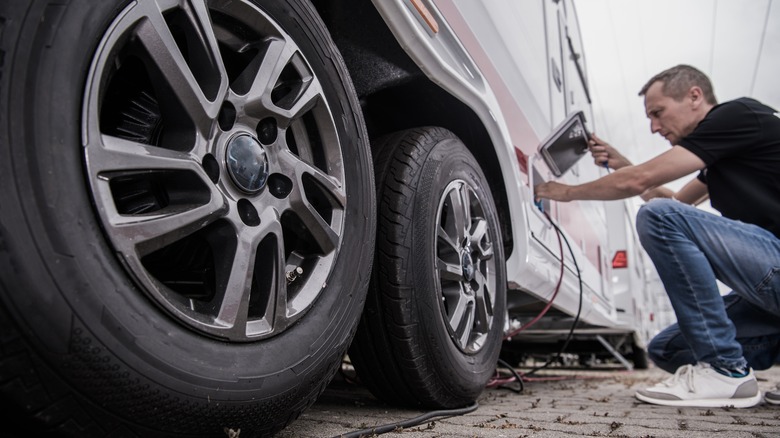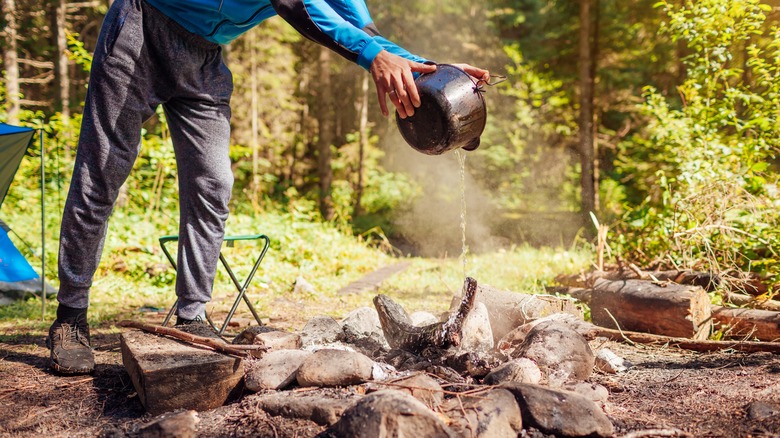Travel Guides Outdoor Adventures Camping
Mariia Boiko/Shutterstock
Hilary I. Lebow
Camping is an opportunity to disconnect from modern life and get in touch with nature. By the end of your trip, you’ll likely be exhausted. But before you pack up and leave your campsite, a few tasks are needed to honor the “Leave No Trace” principles, according to the U.S. Fish and Wildlife Service. These guidelines ensure a safe experience for future travelers while reducing impact on local wildlife. Whenever possible, try to leave a place better than you found it.
Arguably the most important principle on the list is putting out your campfire properly, as 85% of wildfires are caused by humans. Flames can be misleading, too, as they can smolder underground for days undetected. Only leave your campfire once the ground feels completely cold to the touch, likely after you’ve doused it with a bucket of water, stirred the ashes, and doused it one more time for good measure. If you don’t have enough water, spread out the coals to disperse the heat and cover the campfire with sand or dirt.
Tidy up the campground

CGN089/Shutterstock
Once your fire is safely put out, look around the campground and check that you’ve gathered all of your personal belongings (aka, “pack it in, pack it out”). Be sure to pick up all your trash, pack food safely, and inspect the area for loose crumbs or spills. From insects to large mammals, leftover food waste can attract a range of wild animals in search of a meal. This can not only harm members of the species, but also create an unsafe situation for future campers. Once animals successfully find food around a campsite, they are more likely to return again — and again. If you dispose of your trash onsite, close the lid securely to keep curious critters out.
Before you call it a job well done, leave any natural souvenirs you’re thinking of taking with you, like interesting rocks, feathers, branches, bones, plants, or artifacts. In other words, the “leave what you find” principle. Opt for a photograph of what you found instead. Even though leaving natural treasures in place is easy to ignore, and one of the hardest concepts to explain to children, it’s best for the environment and the nearby animal species if you leave their habitat alone. The one exception, of course, is dog waste from your pets. That’s one “souvenir” you’ll want to bag up and toss in the trash.
Prepare the RV for travel

Virrage Images/Shutterstock
Once the campsite looks pristine, turn your attention toward the RV, if you have one. Run through your usual pre-departure checklist, like bringing all outdoor items inside, clearing off the countertops, and securing loose items for the road. You’ll also want to lock and fasten shelves, cabinets, and doors that might fly open. Now would also be a good time to disconnect the utilities and power off the water heater, oven, refrigerator, and any other appliances that won’t be in use for a while.
Outside of the RV, do a visual inspection of the vehicle. Check the tire pressure and fluid levels, ensuring that you can safely reach your next amazing destination. If your black water tank is 2/3 of the way full, go ahead and empty it out now. If it’s been about two weeks since your last draining session, clean and rinse out the gray water while you’re at it. Last but not least, close all the windows, lower your antennas, retract the pop-outs, and power down the lights. On to the next location, you go!

